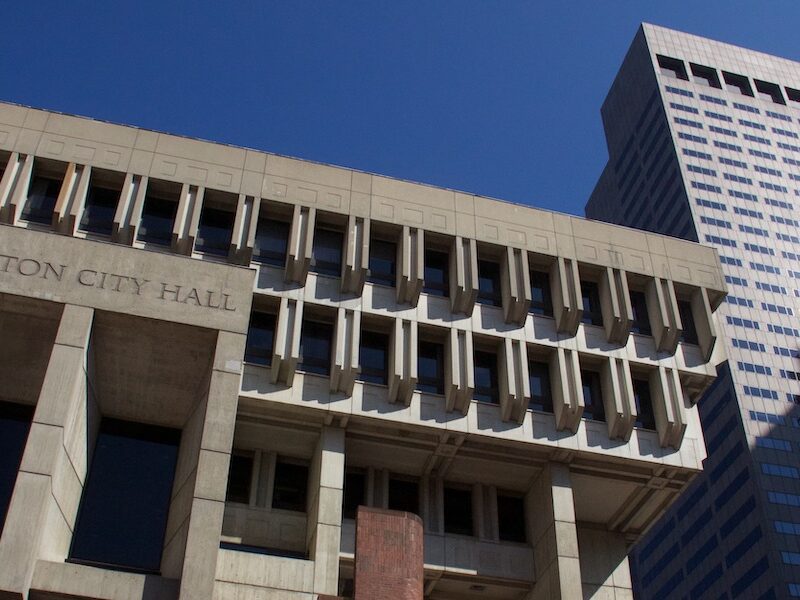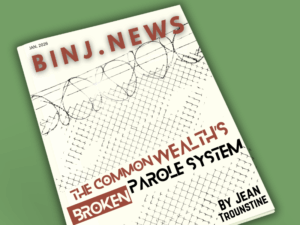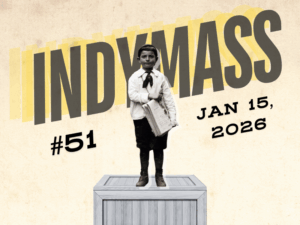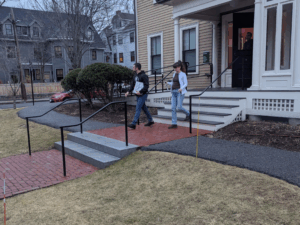Tough questions following an audit of a charity meant to help Bostonians in need
For decades, Boston residents have been able to go to a small room on the second floor of City Hall and get assistance. Need a few hundred bucks to get out of a jam, like paying your heating bill? The Trustees of Charitable Donations for Inhabitants of Boston may have you covered.
But as a recent audit of TOCD suggests, the charity intended to help those in need has seemingly been enriching its coordinator and doing little else. The outside analysis by Ernst & Young, which was obtained by this reporter through a public documents request, describes a total lack of checks on a coordinator whose annual salary has in some years been three or four times the amount of money dispersed through TOCD, as well as an indifferent board overseeing a setup rife with opportunities for mismanagement and fraud.
City spokespeople say administrators have cleaned up the TOCD, putting it under the watchful eye of the treasury department and updating its board for more oversight. But asked about the audit, a spokesperson did not indicate officials will further investigate the charity’s past workings in order to see where funds that were supposed to help people actually went.
“This calls into question the legitimacy of what they’ve been doing during that whole period, it’s quite serious,” Greg Sullivan said. A former state inspector general who now works as a research director for the Pioneer Institute, Sullivan added, “I would highly recommend to the Attorney General’s charitable division that they go in and look very carefully at where the money went.”
The fund
Charities with explicit ties to the city have been around for a long time—the Overseers of the Poor in the Town of Boston, dedicated to helping residents in need, was first incorporated in 1772. The group changed its name and refined its mission over the next two centuries before being reorganized under state law as the Trustees of Charitable Donations.
It’s still a complicated organization. Made up of 20 funds and bequests, from $1.3 million out of the David Sears Charity Fund to $32 via the Sophie M. Friedman fund, TOCD is independent, but it can still accept donations as well. As of 2017, the most recent figures publicly available, it had $4.24 million in an investment account with Morgan Stanley.
The path to getting money from TOCD can be complicated as well. People seeking help fill out an application at City Hall and give any supporting documents to the TOCD coordinator. The coordinator makes sure everything is in order—for starters, a person can only apply to TOCD for assistance once, with the exception of asking for annual assistance on heating bills—before getting approval from the fund’s board of directors. If the request is approved, the coordinator determines which fund to withdraw money from, then transfers the cash from Morgan Stanley to an account at Bank of America, and finally cuts a check directly to the company the applicant is paying.
Though the TOCD has an office in City Hall, no city funds are used. The coordinator is paid through the fund itself, while board members draw no salary. As for oversight, the 12-member board is appointed by the mayor and is supposed to keep an eye on how funds are disbursed.
It’s not uncommon for mayor-appointed boards, especially those that meet infrequently, to have members that stay on well past their appointed terms if no one has been nominated to replace them. Until this January, the most recent spate of appointments to the TOCD came in 2009, from then-Mayor Tom Menino. At that point, there were at least nine members on the board.
By 2018, there were three—well below the five members needed to sign off on disbursements, according to TOCD bylaws. And that’s just one apparent impropriety that auditors discovered in impugning the charity.
‘Risk of fraud’
After Walsh took office in 2014, according to city officials, auditors reviewed several city trusts and funds that have mayoral appointments. At the end of last year, Boston’s treasury department asked the firm Ernst & Young to take another look at TOCD to see if findings identified four years earlier had been remediated.
What they found was a disaster.
The language of the audit is restrained, only indicating likely problems. The document states that rather than conducting a “forensic” audit that looks for specific evidence of illegal behavior, Ernst & Young focused on the “internal controls, processes and procedures” of the charity. Overall, however, the review of those functions portrayed a charity that’s vulnerable to mismanagement or worse. Among the findings:
- A lack of documented policies, procedures and internal controls may lead to inconsistent processes, inefficient operations, and potential non-compliance with applicable laws and regulations.
- A lack of segregation of duties … may lead to inappropriate and fraudulent transactions being recorded on financial statements and increase fraud risk.
- A lack of internal controls … may lead to misstatement of financial statements and material weaknesses of financial controls, resulting in risk of fraud and misappropriation of funds.
While the auditors only suggested the possibility of crimes, they highlighted a legally allowable fact that is nevertheless ugly—the fund was being used to pay its coordinator more than it was to help its intended beneficiaries.
Robin Charlotin has been the coordinator for TOCB since 2001. In her first full year on the job, she made $47,934, according to tax filings. That year the charity made about $296,000, mostly through investment income, and spent about $148,000 on beneficiaries and $88,000 on expenses including Charlotin’s salary. Charlotin could not be reached for comment.
By 2010, Charlotin’s salary had climbed to $76,000, while only $41,000 was given out to applicants. According to the audit, over the past four years the charity’s average expenses—including Charlotin’s salary—were $131,276, while the average disbursement total was $49,740. In 2017, Charlotin pulled in a salary of $93,231, while TOCB gave out $21,917. The charity only made $98,000 in investment income and donations that year.
“Insufficient and ineffective utilization of the fund may risk the Charitable Trust not meeting its mission and objectives to assist City of Boston residents in need,” the audit states.
Sullivan was more blunt: “That’s as dismal a record as you can generate. That’s the surest way to deplete money intended to help people, spending five of every six dollars to pay administrators,” he said. “It seems as though the amount of benefits being given out doesn’t even approach the amount of administrative costs for the charity and that’s a terrible record, it shouldn’t be that way.”
Reconciliation
The Ernst & Young audit also raises questions about Charlotin’s oversight of the charity’s finances. While the audit never names employees or trustees, it says the fund had “no consistent process to track inquiries and applications or verify whether new applicants had previously received assistance,” raising the possibility that people could have been inappropriately given money over and over. Charlotin, the coordinator, had sole responsibility for all disbursements, as well as access to all financial accounts and an ATM card, according to the audit.
“There are currently no reconciliation procedures performed to validate the accuracy and completeness of financial records, which may lead to inappropriate and mismanagement of trust funds,” the audit notes. “Over the past 4 years, it appeared the coordinator has relied on the external auditor to identify discrepancies between the investment activity and the general ledger.”
The TOCD is audited by an outside organization every year, and that auditor has found “material misstatements” between 2014 and 2017 plus “material weaknesses related to internal controls over financial statements” between 2015 and 2017, according to Ernst & Young. These did not involve small figures. The outside auditor found accounting errors of $2.6 million and $2.2 million in 2014, along with four separate misstatements involving more than $5 million in 2017.
Where was the board? According to the Ernst & Young audit, the body only had three of its required 12 members during the audit period (although the TOCD’s tax returns list as many as six members). And while the bylaws say the board is supposed to meet every four to six weeks—nine to 12 times a year—it only met 25 times over the audit’s four-year period. Eleven of those meetings had fewer than the board’s three members present, and seven saw only the chair in attendance. Multiple meetings “incorrectly and inconsistently” documented having quorum, according to the audit.
The audit does not name Charlotin or any board members, but according to tax filings the chair was Rev. William Dickerson, who has been a member since 2005. According to the audit, “the chairman of the board regularly signs two to three blank checks at each board meeting for the coordinator to provide emergency disbursements.” Dickerson could not be reached for comment.
“A lack of internal controls in place to provide appropriate oversight … may lead to mismanagement of the charitable trust,” the audit states, adding, “a lack of controls around board voting and approval process may lead to risks of fictitious or duplicative applications being processed.”
The audit describes a board that was, at best, asleep at the switch. Nevertheless, as part of a full slate of appointments made official in January, Dickerson and another person who was on the board during the time in question were both re-appointed by Walsh.
“Given the dismal history of performance, it doesn’t seem to make much sense to reappoint the folks who are supposed to be in charge,” Sullivan said. “The material weaknesses on the previous audits are black marks against the administrators of the program. Usually if an organization gets an audit with material weaknesses identified, everybody should be rushing in to fix that immediately. That’s not what happened here.”
Walsh moved to make new TOCB appointments at the beginning of 2019, while the Ernst & Young audit was still ongoing. The fully constituted board met in March to discuss the findings, which were completed in February, and made major changes to the trust’s operations. The city Treasurer’s Trust Division will now oversee all financial and operational activities, while the board still approves disbursements. City officials said bringing that in-house, into a system that already manages more than 200 trusts containing $800 million in cash and investment assets, will ensure proper accounting for TOCB activities.
And it will cut down on management costs significantly. What previously cost $145,000 will be slashed to about $20,000, leaving more money available for applicants, officials said.
“I know the mayor recently made appointments to try and address this, but that doesn’t address the larger looming question of what happened in the past,” Sullivan said. “The recordkeeping has been so poor and not overseen by board members [that] it makes this highly vulnerable to abuse. I’m not saying it was, but it should be investigated.”









